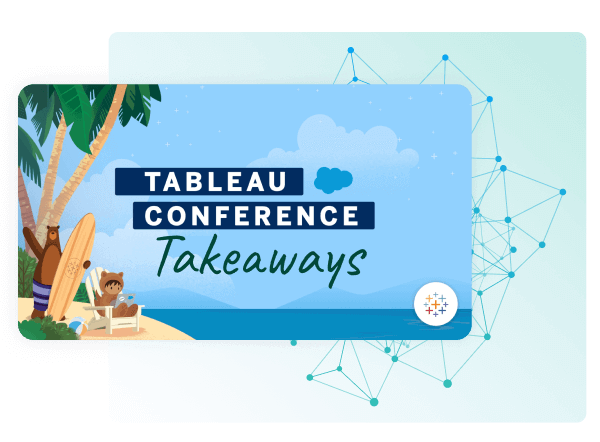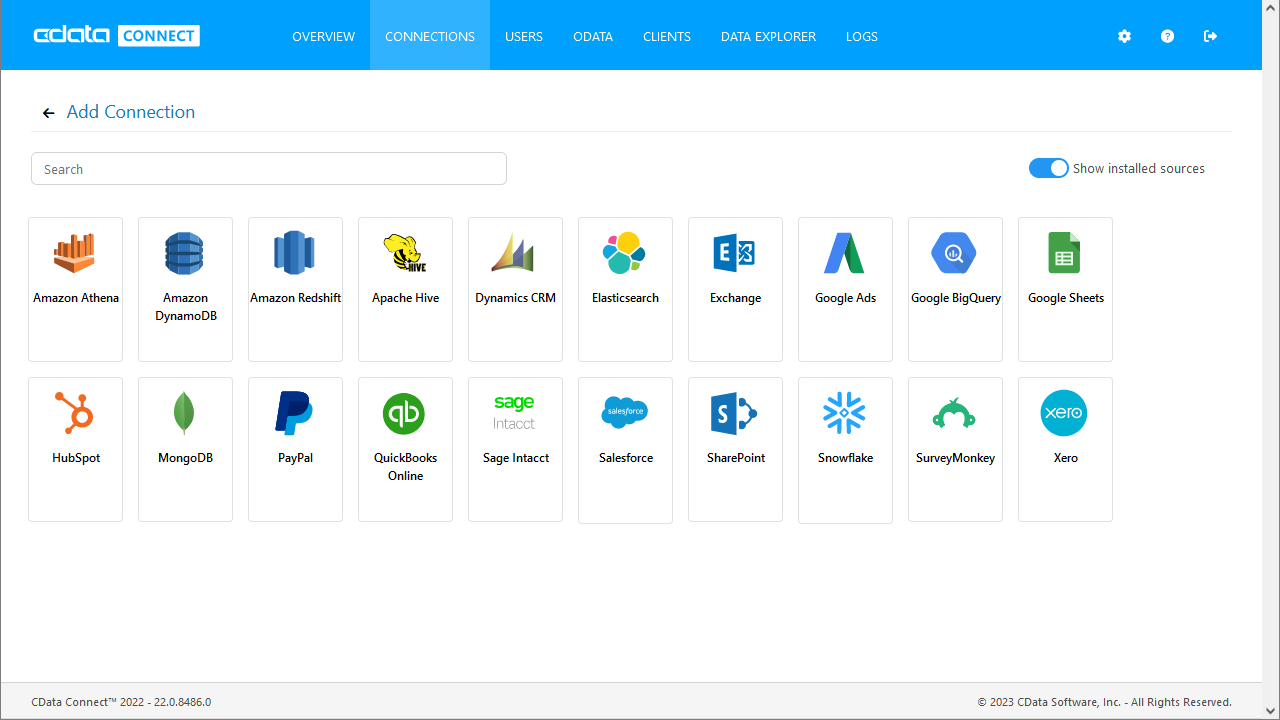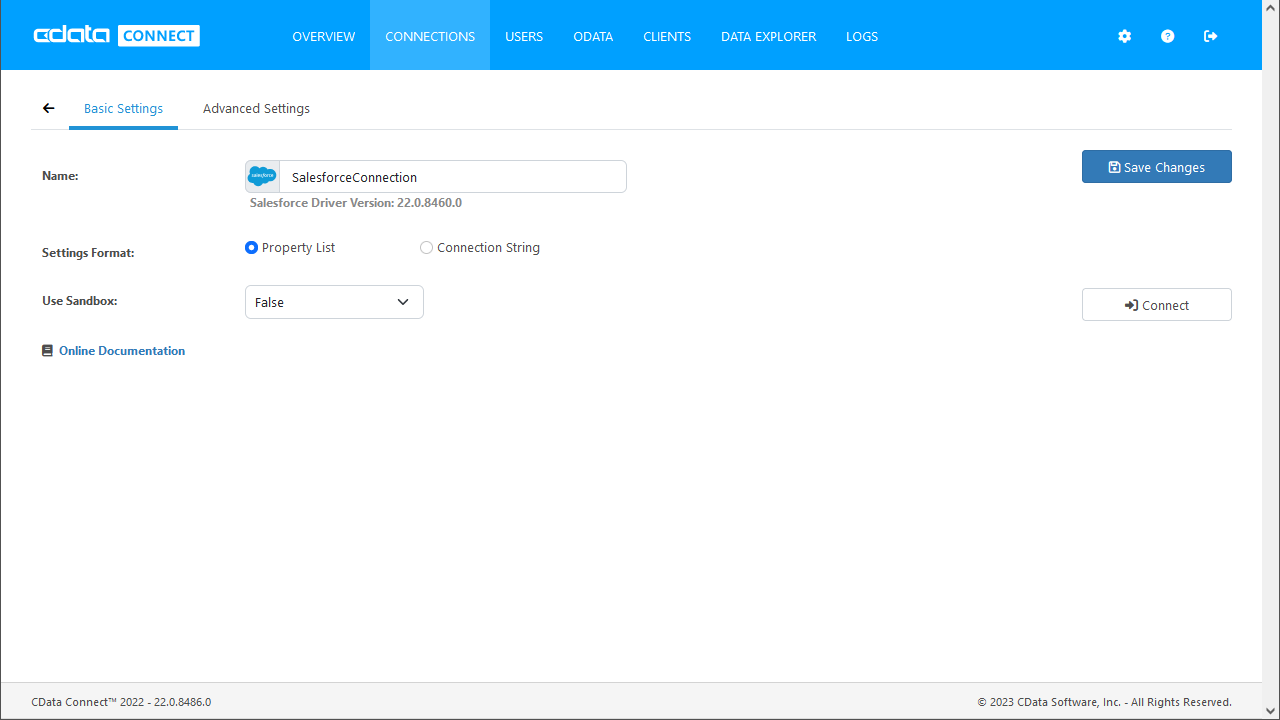Discover how a bimodal integration strategy can address the major data management challenges facing your organization today.
Get the Report →Build SAP Ariba Source Visualizations in Tableau Cloud
Use CData Connect Server to create a virtual SQL Server Database for SAP Ariba Source data and build visualizations in Tableau Cloud.
Tableau Cloud is an analytics platform fully hosted in the cloud. When paired with CData Connect Server, you get instant, cloud-to-cloud access to SAP Ariba Source data for visualizations, dashboards, and more. This article shows how to create a virtual database for SAP Ariba Source and build visualizations from SAP Ariba Source data in Tableau Cloud.
CData Connect Server provides a pure SQL Server interface for SAP Ariba Source, allowing you to easily build visualizations from live SAP Ariba Source data in Tableau Cloud without installing connectors or publishing worksheets and data sources from Tableau Desktop. As you build visualizations, Tableau Cloud generates SQL queries to gather data. Using optimized data processing out of the box, CData Connect Server pushes all supported SQL operations (filters, JOINs, etc) directly to SAP Ariba Source, leveraging server-side processing to quickly return SAP Ariba Source data.
Create a Virtual SQL Server Database for SAP Ariba Source Data
CData Connect Server uses a straightforward, point-and-click interface to connect to data sources and generate APIs.
- Login to Connect Server and click Connections.
![Adding a connection]()
- Select "SAP Ariba Source" from Available Data Sources.
-
Enter the necessary authentication properties to connect to SAP Ariba Source.
In order to connect with SAP Ariba Source, set the following:
- API: Specify which API you would like the provider to retrieve SAP Ariba data from. Select the Supplier, Sourcing Project Management, or Contract API based on your business role (possible values are SupplierDataAPIWithPaginationV4, SourcingProjectManagementAPIV2, or ContractAPIV1).
- DataCenter: The data center where your account's data is hosted.
- Realm: The name of the site you want to access.
- Environment: Indicate whether you are connecting to a test or production environment (possible values are TEST or PRODUCTION).
If you are connecting to the Supplier Data API or the Contract API, additionally set the following:
- User: Id of the user on whose behalf API calls are invoked.
- PasswordAdapter: The password associated with the authenticating User.
If you're connecting to the Supplier API, set ProjectId to the Id of the sourcing project you want to retrieve data from.
Authenticating with OAuth
After setting connection properties, you need to configure OAuth connectivity to authenticate.
- Set AuthScheme to OAuthClient.
- Register an application with the service to obtain the APIKey, OAuthClientId and OAuthClientSecret.
For more information on creating an OAuth application, refer to the Help documentation.
Automatic OAuth
After setting the following, you are ready to connect:
-
APIKey: The Application key in your app settings.
OAuthClientId: The OAuth Client Id in your app settings.
OAuthClientSecret: The OAuth Secret in your app settings.
When you connect, the provider automatically completes the OAuth process:
- The provider obtains an access token from SAP Ariba and uses it to request data.
- The provider refreshes the access token automatically when it expires.
- The OAuth values are saved in memory relative to the location specified in OAuthSettingsLocation.
![Configuring a connection (SQL Server is shown).]()
- Click Save Changes
- Click Privileges -> Add and add the new user (or an existing user) with the appropriate permissions.
With the virtual database created, you are ready to build visualizations in Tableau Cloud.
Visualize Live SAP Ariba Source Data in Tableau Cloud
The steps below outline creating a new data source in Tableau Cloud based on the virtual SAP Ariba Source database in Connect Server and building a simple visualization from the data.
- Log into Tableau Cloud, select a project, and create a new workbook.
- In the new workbook, choose the Microsoft SQL Server Connector from the data wizard and fill in the values for your Connect Server instance.
NOTE: Be sure to check the "Require SSL" checkbox. - Select your newly created database and the table(s) you wish to visualize (defining relationships for JOINed tables as needed).
- Select Dimensions and Measures and configure your visualization.
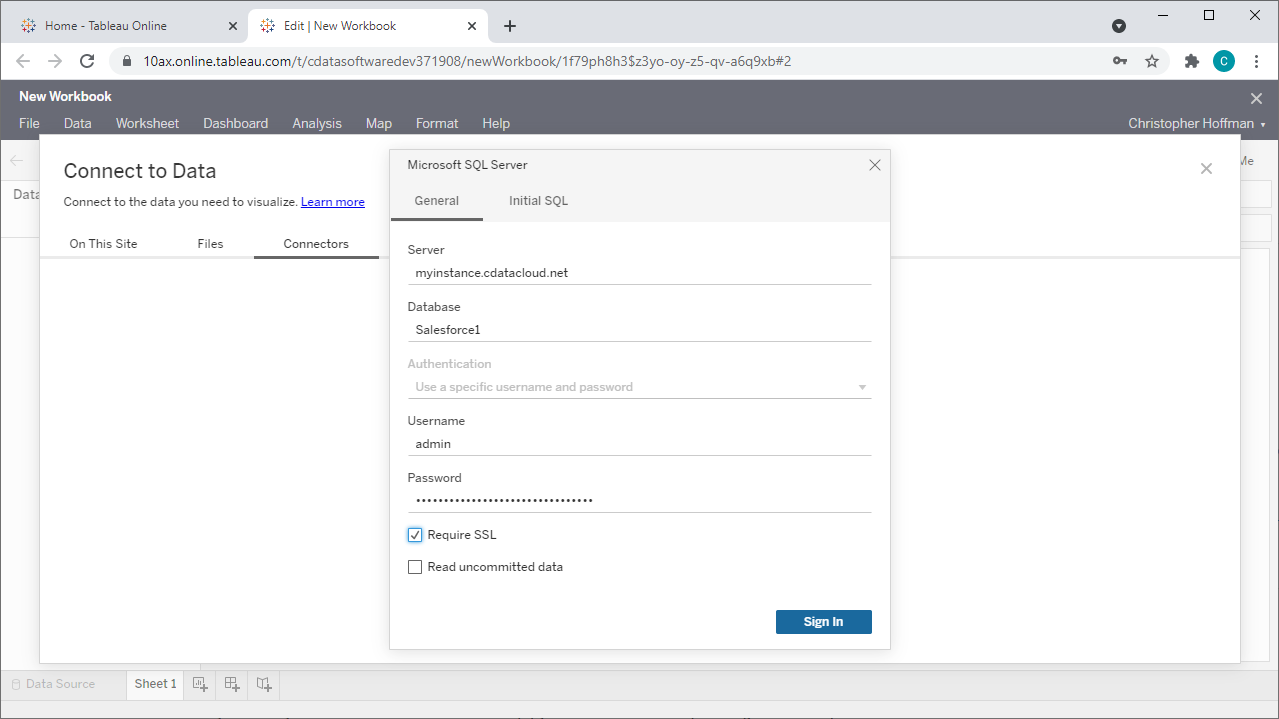
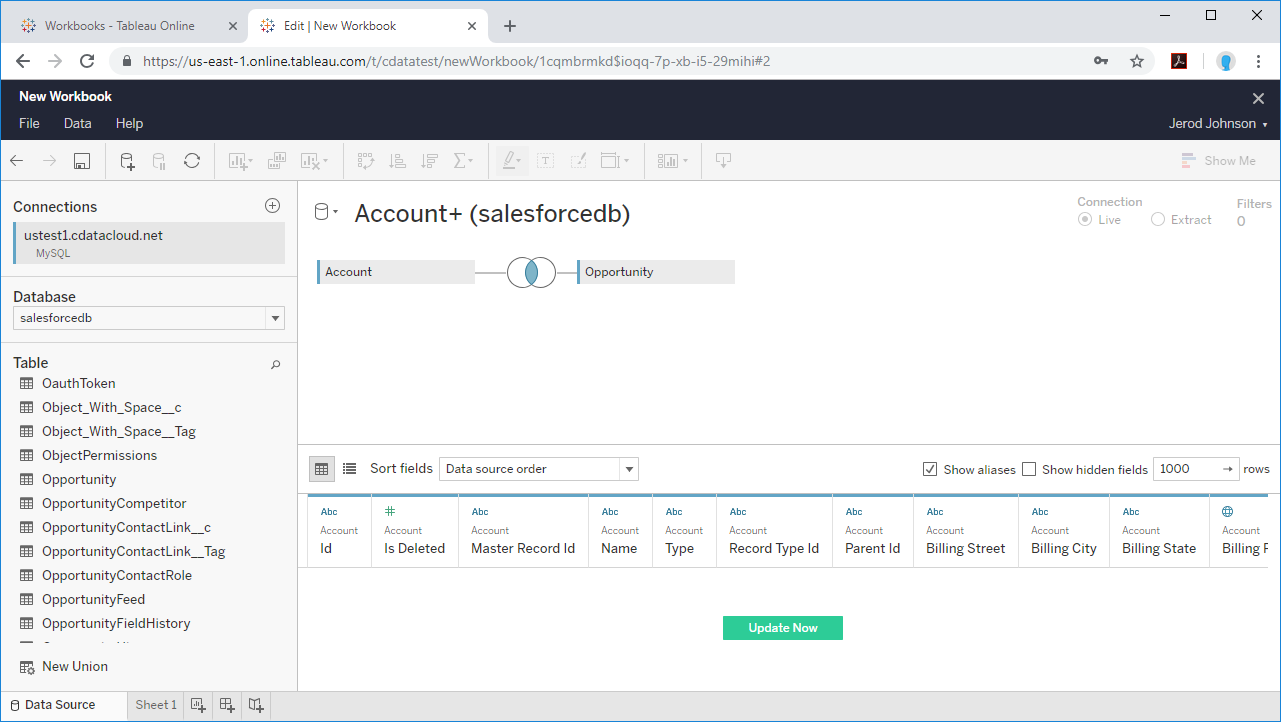
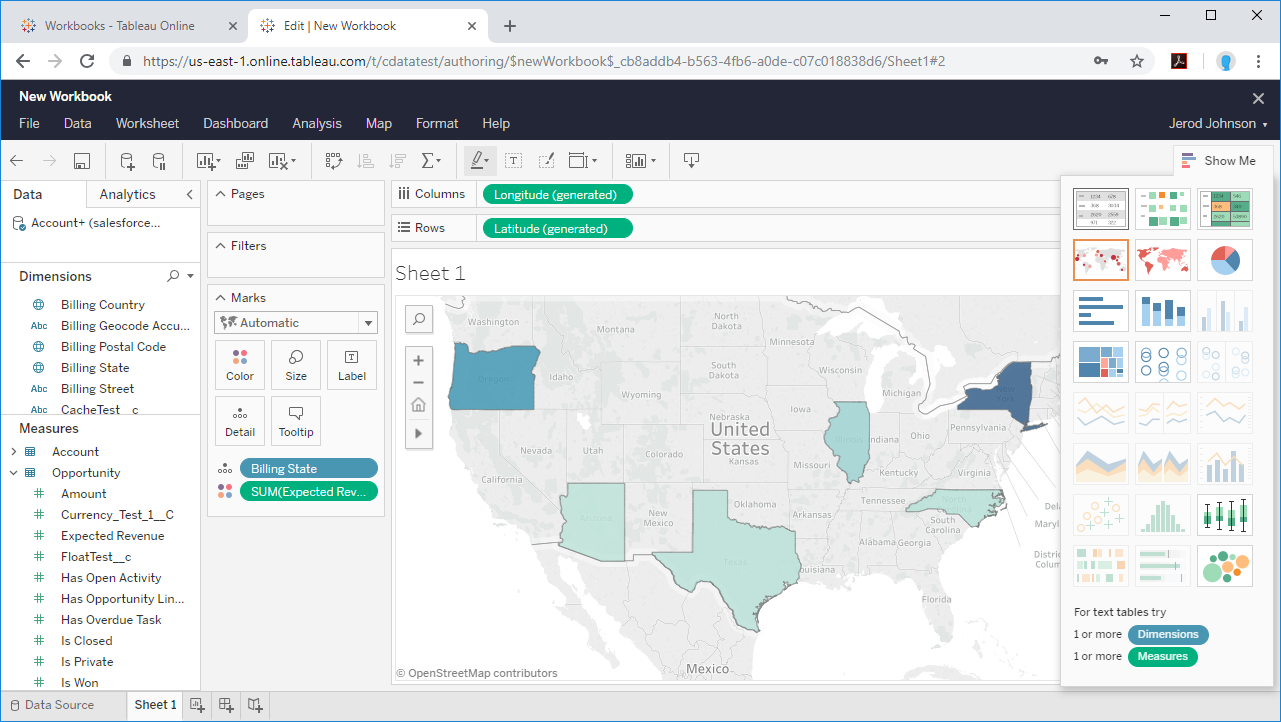
SQL Access to SAP Ariba Source Data from Applications
At this point, you have a direct connection to live SAP Ariba Source data from your Tableau Cloud workbook. You can create new visualizations, build dashboards, and more, with no need to publish data sources and workbooks from Tableau Desktop. For more information on gaining SQL access to data from more than 100 SaaS, Big Data, and NoSQL sources from cloud applications like Tableau Cloud, refer to our Connect Server page.

